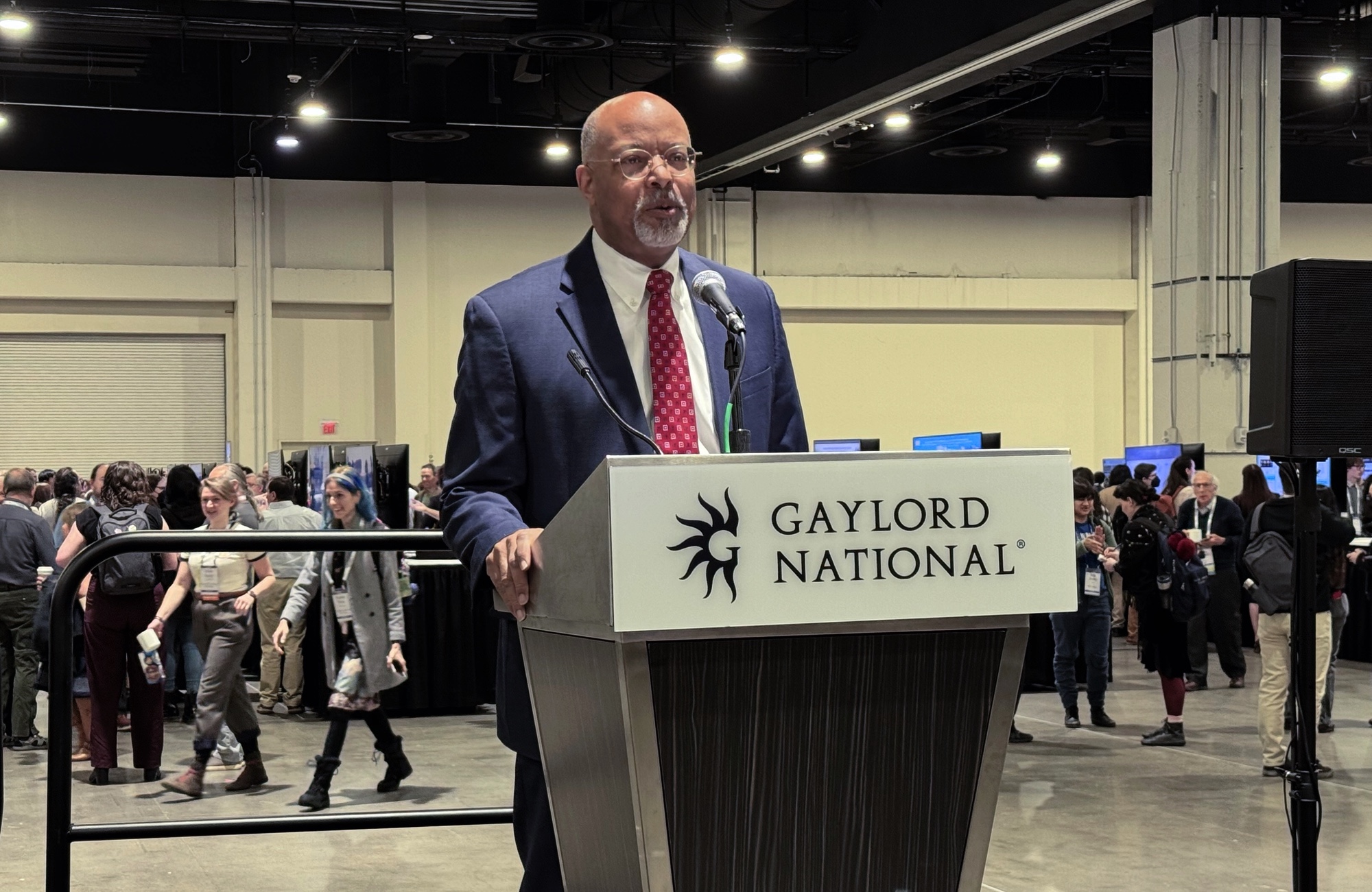As the Trump administration prepares to take office, Congressman Glenn Ivey expresses cautious optimism about the future of NASA’s Goddard Space Flight Center. Scientists remain concerned about the agency’s direction, especially given Elon Musk’s influence, but Ivey aims to keep science moving forward.
Congressman watches for potential changes at NASA under Trump administration

Key Takeaways:
- Rep. Glenn Ivey is cautiously observing potential changes at NASA under the incoming Trump administration.
- The scientific community is concerned about Elon Musk’s influence on NASA’s future direction.
- Previous attempts by the Trump administration to cancel key NASA missions were blocked by Congress.
- Critical missions like PACE and the Roman Space Telescope are proceeding as planned.
- Jared Isaacman has been nominated as NASA administrator, with confirmation expected around March.
Congressman Ivey’s Vigilant Stance
NATIONAL HARBOR, Md.—The congressman representing NASA’s Goddard Space Flight Center is adopting a cautious approach toward potential changes at the agency under the impending Trump administration. Speaking at the 245th Meeting of the American Astronomical Society on January 13, Rep. Glenn Ivey (D-Md.) emphasized his commitment to supporting science and NASA’s mission.
“I want to make sure I do everything that I can to keep science moving in the right direction, and to keep NASA moving in the right direction,” Ivey stated.
Concerns Among Scientists
The scientific community, including astronomers gathered at the conference, has expressed apprehension about possible shifts in NASA’s focus, particularly with Elon Musk’s close ties to President Trump. Musk, the founder and chief executive of SpaceX, could wield substantial influence over the agency’s future.
“I haven’t met Mr. Musk yet, but we’ll see what sort of changes he pushes for,” Ivey remarked.
Historical Challenges to NASA Missions
Scientists at Goddard recall that during the first Trump administration, there were attempts to cancel significant missions led by the center. Notably, the Plankton, Aerosol, Cloud, ocean Ecosystem (PACE) Earth science mission and the Nancy Grace Roman Space Telescope were targeted. However, Congress intervened multiple times to prevent these cancellations.
Despite previous threats, PACE successfully launched in February 2024, advancing Earth science research. Similarly, the Roman Space Telescope remains on budget and is scheduled for launch by May 2027, promising to expand our understanding of the universe.
Jared Isaacman’s Nomination
Last month, President Trump announced Jared Isaacman as his nominee for NASA administrator. Ivey acknowledged that he has yet to meet Isaacman but is open to his leadership.
“I don’t mind a fresh start,” he suggested, noting that Isaacman would be focusing on Senate confirmation, expected around March after Cabinet positions are filled.
Looking Ahead
In an interview following his speech, Ivey expressed hope that the administration would “figure out a way to protect science, protect R&D.” He also noted the potential benefits of increased commercialization within NASA programs, citing SpaceX’s efficiency and innovation.
“They’re doing some stuff that’s actually pretty interesting and efficient,” he said, referring to SpaceX’s achievements.
Ivey acknowledged that the administration might prioritize voices concerned with defense or competition with China but believed these areas align with broader scientific goals.
“It may be that the only voices that they’re listening to are voices that deal with defense or competing with China, but those fit to what we need to do overall as well,” he added.
Conclusion
As NASA navigates this period of transition, stakeholders like Congressman Ivey remain vigilant, striving to ensure that science and exploration continue to advance. The scientific community watches closely, hopeful that key missions will proceed unimpeded and that the agency’s direction will remain aligned with the pursuit of knowledge.











